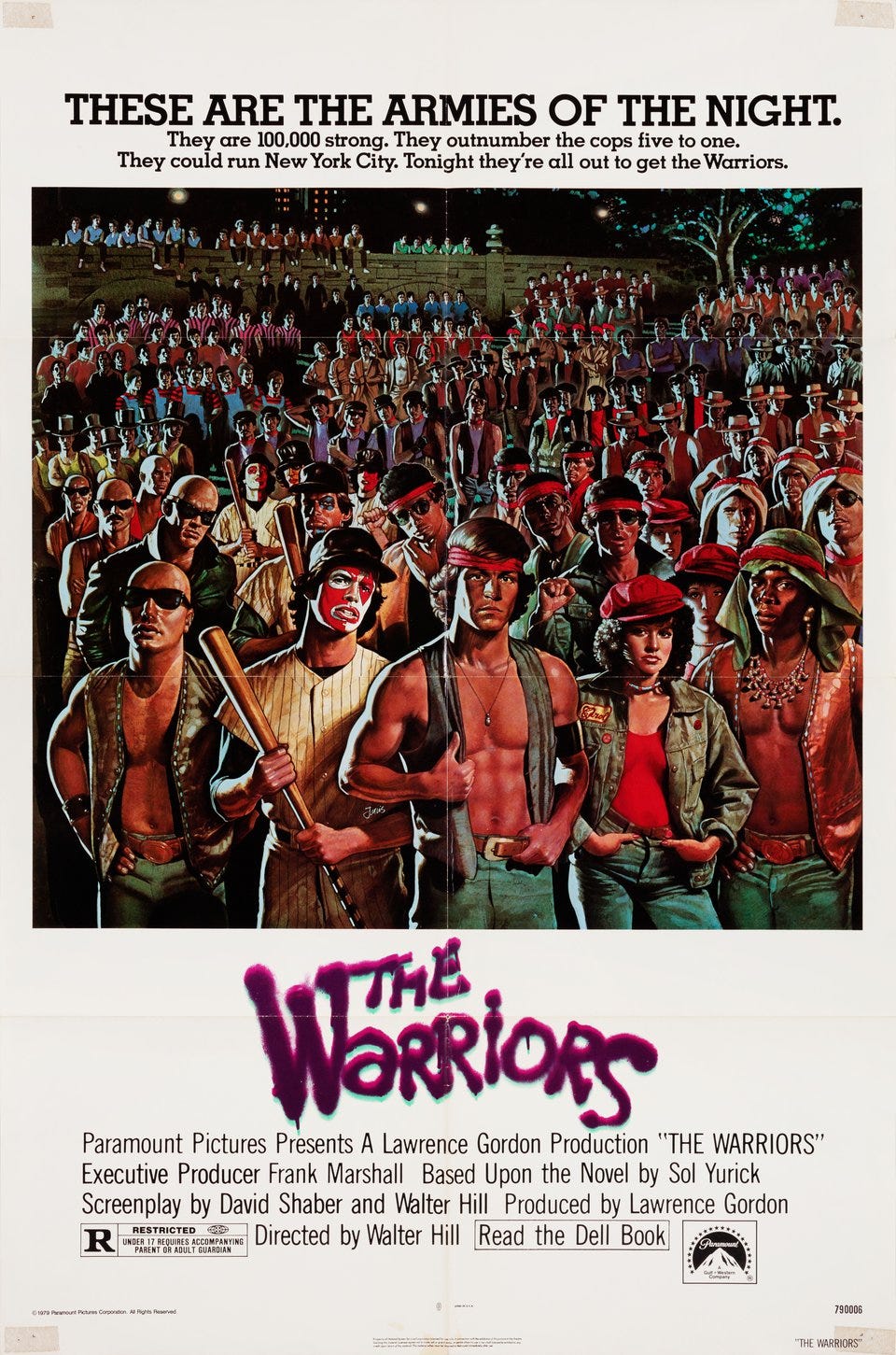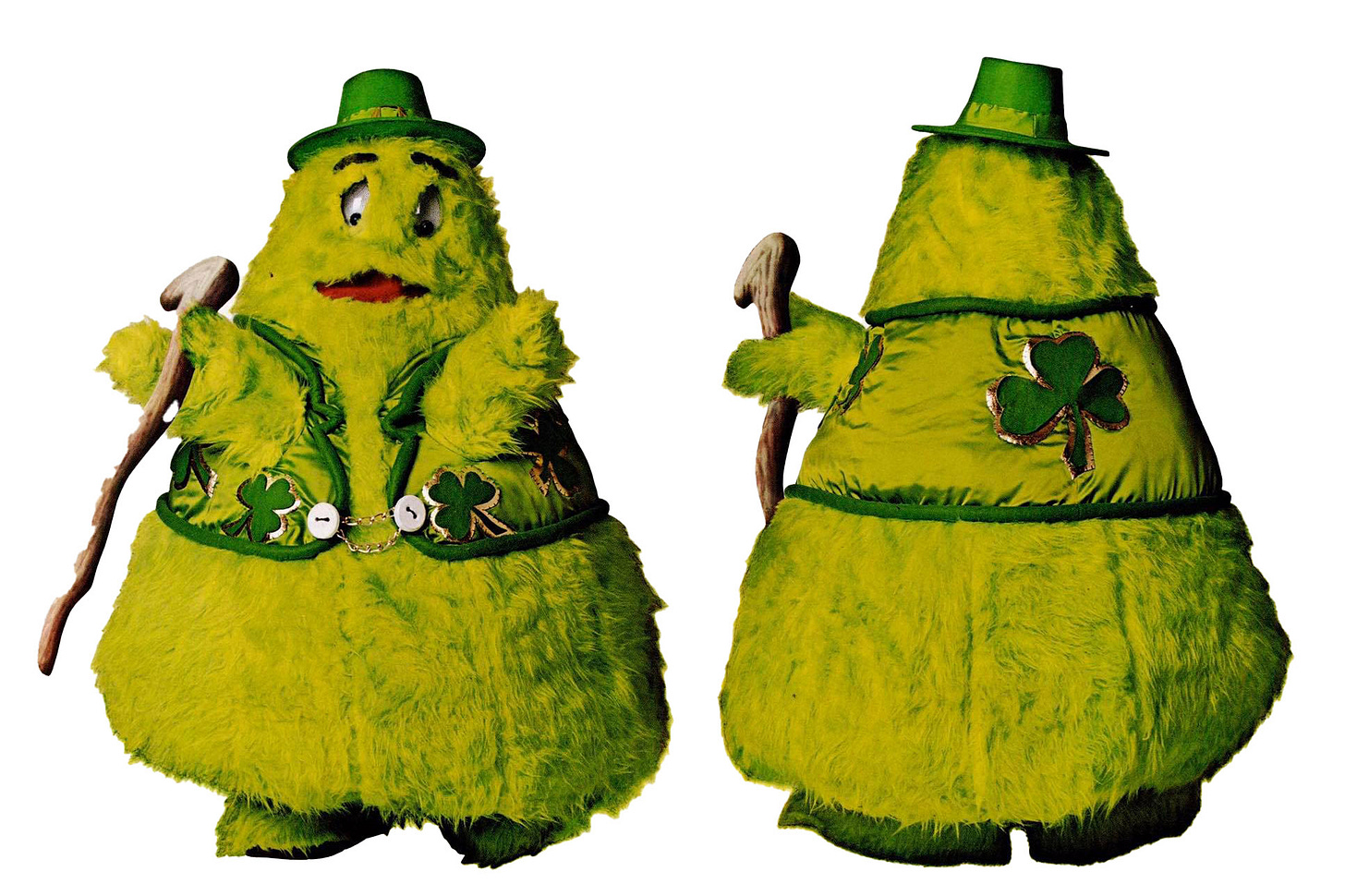Alex Chilton died on this date in 2010. I found that out while I was in bed and winding down for the night after a busy day. It was spring break and we had attended the St. Patrick’s Day Parade in downtown Indianapolis. We parked on Massachusetts Avenue and before we left, we visited Luna Music. In the time between 2010 and today, that location became another victim of the ravages of time and the diminishing returns of running a physical retail business.
Visiting a record store is a dangerous business for me. I keep a list of albums and artists to explore in the notes section of my phone and use that to guide my browsing. On days I visit a shop with no agenda or not really looking to buy, I’ll look for albums I already own. It’s a snapshot into the shop’s curation and gives me a rough idea of what I else I might find. For example, if a shop had The Fantastic Expedition of Dillard & Clark, I’d feel pretty good about what might be available in the roots music section.
It’s also like catching up with an old friend or returning to view a work of art you’ve seen a hundred times before. The you experiencing it in that moment is not the same as the you who experienced it the first time ‘round. Change is the only constant, you need a frame of reference to fully realize that. You can reflect on what has changed and what hasn’t. It can be the same old song with a different meaning since you’ve been gone or the song remains the same.
On that day, I felt compelled to see what Big Star they had. This sometimes happens to me and often it’s before someone passes away. It can be a bit eerie, such as when I brought up Jerry Lee Lewis to a friend unprompted and then learned that he had been reported dead. Those reports were later retracted and then he passed not long after.
On that day, I was pleased to see copies of #1 Record and Radio City available for sale.
I’d liked those albums since my first year of college. My freshman year is where my listening habits expanded beyond the orbit of planet classic rock.
There were several reasons for that development, for one, I had access to more music than I had before thanks to the university’s library system. I took a class on rock music in the 70s and 80s that, despite its name, covered genres beyond rock and went into the 90s, focused primarily on bands that made it big in 1991, the year punk broke.
I was introduced to Big Star through a friend I had made in the dorm. The first year of college can be an especially lonely and trying time for those living away from their family for the first time and without any of their friends at the same school. It’s a loneliness no one wants to name.
It seems like a sign of weakness: surrounded by thousands of people your age, many with similar backgrounds and similar interests yet unable to connect with others? Pathetic.
So you try your best to build a new circle. Maybe you see them in the lobby every day as you read the student newspaper or at the cafe or traditional dining. I don’t remember the exact circumstances of our meeting, but we talked about music. They were big into R.E.M. and Rufus Wainwright. They also loved Big Star, so I purchased the 2-for-1 of #1 Record/Radio City.
I liked a lot of the songs, but didn’t love them all, at least not right away. I already knew “In The Street,” but as the theme song to That 70s Show and as recorded by Cheap Trick. “September Gurls” was the song that really knocked me off my feet. I delved into the history of the band and was shocked to learn that apart from the theme song to a multi-camera sitcom, one of the members of the band had been in The Box Tops. I knew them because the oldies station I listened to growing up would play “The Letter.”
One of my favorite additions to the director’s cut of Almost Famous is this Lester Bangs assessment of the song.
”Do you know ‘The Letter’ by The Box Tops is a minute and fifty-eight seconds long. Means nothing. But it takes them less than two minutes to accomplish what it takes Jethro Tull hours to not accomplish.”
I couldn’t rap my head around that, because the guy on that song sounded a whole lot different from what I heard on those Big Star albums. It’s not the first or last time I realize I have encountered a performer in a different way. That same year, I started listening to The New York Dolls and realized that my first experience with David Johansen was hearing “Hot Hot Hot” at my aunt’s wedding. He also portrayed the Ghost of Christmas Past in Scrooged.
This is a phenomenon experienced by every generation no doubt. Some film fans became aware of John Huston because they were fans of Anjelica Huston, which must be baffling for people who got to see The Maltese Falcon in a theater on its initial run.
Before getting into the films of Robert Altman, I primarily associated Henry Gibson with Charlotte’s Web, Rocket Power, and The Luck of the Irish. Pandora hipped to me a song called “Here Comes That Feeling” by Sandy Salisbury, to my astonishment, that was the same person as Graham Salisbury, who wrote several books I loved as a kid.
As I wrote about last week, things like that are a wonderful reminder of how connected we all are. I find such connections valuable, a means of placing some sort of framing structure on a chaotic world.
The first place I recall seeing the name Alex Chilton was in Chuck Klosterman’s Sex, Drugs, and Cocoa Puffs in a chapter about a pop music studies conference. The author encounters a woman working on a book about Alex Chilton. I now wonder if that writer was Holly George-Warren, author of A Man Called Destruction: The Life and Music of Alex Chilton, from Box Tops to Big Star to Backdoor Man.
I try to talk shop with this woman, but her shop appears to exist in Narnia; she tells me her ultimate goal is to publish a fictional biography about Alex Chilton built on the premise that Chilton was actually sired by a sexual tryst between a woman and an alligator. “The research is totally kicking my ass right now,” she tells me. “Basically, I need to learn more about alligators. And about the Delta blues.”
In that same book, I first heard of The Replacements, they were mentioned in an aside in an essay about coaching a youth baseball team.
There’s nothing admirable about having the kind of killer instinct that always felt normal to a weirdo like me. I mean, these little guys didn’t want to spend two months chasing a stupid leather sphere through the stupid green grass in stupid right field; they just wanted to do something that kept them under the radar until they got to tenth grade, when they could quit pretending they cared about sports and start listening to Replacements cassettes. I’m sure my guys would have loved youth soccer.
The Replacements counted Big Star as one of their influences, thanks to efforts of Peter Jesperson, who discovered The ‘Mats and later managed them and tried to expand their taste with record recommendations. Alex Chilton later produced demos for Tim. He was present when the band recorded Pleased To Meet Me at Ardent Studios, the very same place Big Star made their albums years before. That album featured a song named in honor of him.
Westerberg alluded to that in his tribute to Chilton in the New York Times after his passing.
Yeah, December boys got it bad, as “September Gurls” notes. The great Alex Chilton is gone folk troubadour, blues shouter, master singer, songwriter and guitarist. Someone should write a tune about him. Then again, nah, that would be impossible. Or just plain stupid.
Nine years ago this month, I took a trip with some friends to New Orleans. On the way there, we stopped in Memphis and paid a pilgrimage to Sun, Stax and Ardent. Sun and Stax were brief encounters, didn’t have enough time to give the spots their due, but we got to tour Ardent thanks to the kindness of a studio employee.
I got to sit at the console in one of the studios and see behind-the-scenes stuff, like the drum kit used by Big Star drummer Jody Stephens.
New Orleans is where Chilton died. He spent the last part of his life there. There has always been a strong Memphis and New Orleans connection, both cities have a claim for most important city in music history, at least as far as the U.S. is concerned. During his time in New Orleans, Chilton was neighbors with Ray Davies of The Kinks, who had this to say about the experience.
“Way back in 2004 I was in New Orleans, recovering from an injury, and I was befriended by a neighbor called Alex Chilton. Alex had been in a band called Big Star, and had sung on a record called ‘The Letter’ by The Box Tops. We didn’t talk about music much, but he did say to me before I came back to England, ‘You know, I’ve recorded one of your songs, ‘Till the End of the Day’, with Big Star, and I’d love to do another song with you. And he asked me to write some songs for him – I felt really flattered, because by then I had found out about his history. A very unassuming guy.”
“In 2009, on July 4th, Independence Day, he came up to Konk Studios. He was a real character – he was wearing a New Orleans beret, he had a cigarette holder – he was a chain smoker, and I think a recovering drinker – and he said, ‘Let’s do it!’ I said, ‘What would you like to do?’ He said, ‘Til The End Of The Day’ and ‘Set Me Free’. So I just had an acoustic guitar and a rhythm box, because I hadn’t organized anything. I played guitar and Alex sang. We did five or six takes and comped it together.”
The Kinks were a major touchstone for Big Star, along with The Beatles, Beach Boys, Byrds and virtually every other great act that forms the soil in which power pop sprouted. You don’t always get a chance to meet the people you admire and sometimes come to regret it when you do, but I’m glad this story was a happy one.
There’s lots to like about music. It sounds great when you’ve had a jazz cigarette for one. And in a more important way, it connects people. One of my favorite books is Love Is A Mixtape. The same friend who introduced me to Big Star recommended that book to me. It’s a lovely memoir about music, love and loss and my favorite chapter deals with how Rob Sheffield met his wife. They bonded over their mutual love of Big Star. I think about that chapter quite often when I think about love and connecting on something as powerful as a favorite band. The chapter discussing how they met is available to read online.
What You Leave Out
There was no question what song I would pick this week. My favorite Big Star song, bar none. I love the guitar solo and how melancholy and wistful it makes me. The part that makes the song the song, is “I loved you, well, never mind.” It’s the perfect encapsulation of power pop: yearning, but ultimately falling short. No matter how strongly or deeply felt, love sometimes isn’t enough.
Movie Recommendation
Caught this as part of the seventh anniversary celebration for Cinematic Void. It was my first time seeing it on 35mm and almost ten years since I’d seen it in a theater.
I lived in Brooklyn for two years for grad school. My last weekend before I left town, I went into Manhattan for a night on the town. I ate at the Papaya King on St. Marks Place and then I went to the Grassroots Tavern and drank a pitcher of IPA and played Television and The Replacements on the jukebox until it was time for a midnight screening of The Warriors at Sunshine Cinema.
Thanks to the pitcher of beer and late hour, I fell asleep at one point in the film but woke up in time to hear Luther clack the bottles together. After the film ended, I gathered my things and left the theater.
And like the Warriors, I, too, boarded a train bound for Coney Island.
Looking back, the three places I visited are now all gone. Fitting in a way, The Warriors is a film from a bygone era of New York. The years roll on and the shape and face of the city shifts and changes. Only the memories remain.
A Fast Food Nation Once Again
Uncle O’Grimacey was a creation of McDonald’s used to promote the Shamrock Shake, he is the uncle of The Grimace and Philadelphia may factored in his phasing out. Supposedly the actor playing the character at an event in Philly made comments in support of the Irish Republican Army.










Really beautiful man. Thanks for writing this.